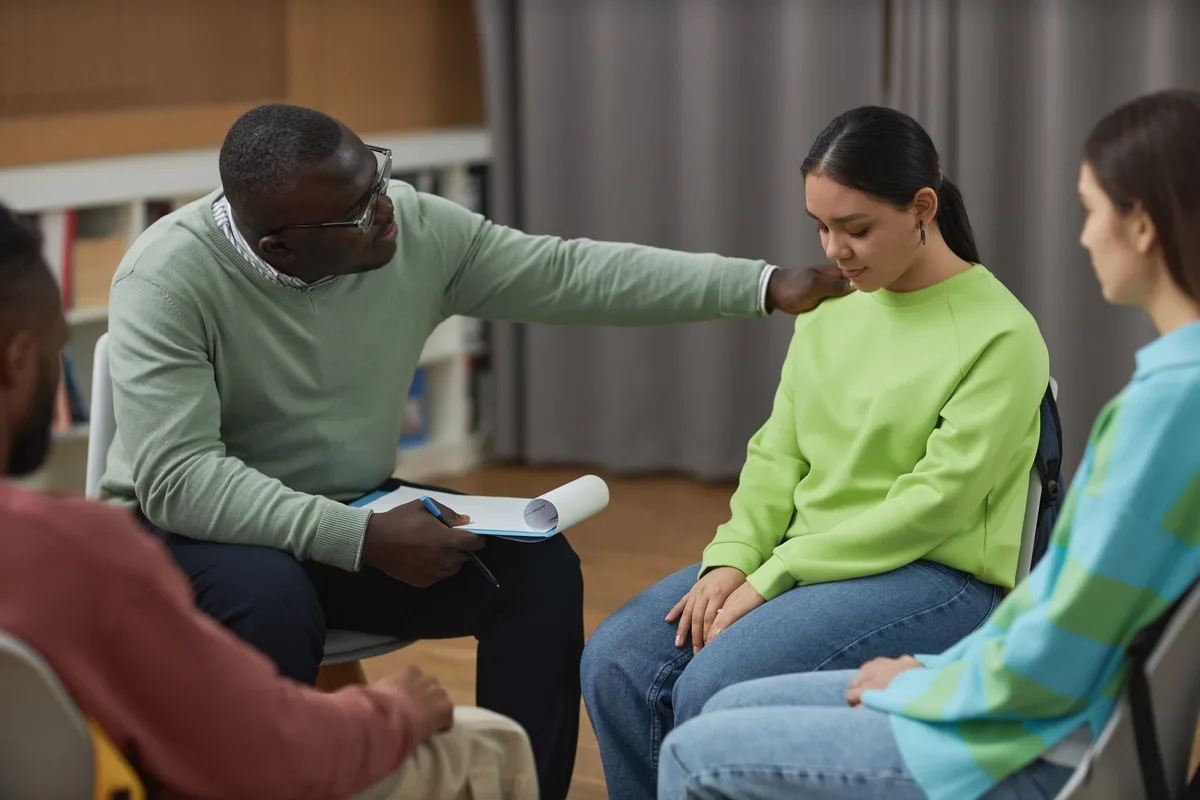24/7 Helpline:
(866) 899-221924/7 Helpline:
(866) 899-2219
Learn more about Ecstasy Rehab centers in Lowndes County

Other Insurance Options

WellPoint

WellCare Health Plans

Choice Care Network

Evernorth

Absolute Total Care

Premera

Anthem

Ceridian

EmblemHealth

Regence

BHS | Behavioral Health Systems

BlueCross

CareSource

Holman Group

Highmark

State Farm

Horizon Healthcare Service

Coventry Health Care

Private insurance

Health Choice

Greenleaf Behavioral Health Hospital
Greenleaf Behavioral Health Hospital, located in Valdosta, Georgia, offers a continuum of care that ...

Pathway to Hope Counseling Services
Pathway to Hope Counseling Services is a private rehab located in Valdosta, Georgia. Pathway to Hope...

Redirect Counseling Services
Redirect Counseling Services is an outpatient rehab located in Valdosta, GA. Redirect Counseling Ser...

Treatment Center of America
Treatment Center of Valdosta is a private rehab located in Valdosta, GA. Treatment Center of Valdost...

Peace Way Counseling
Peace Way Counseling is a private rehab located in Valdosta, Georgia. Peace Way Counseling specializ...

South Georgia House of Hope
House of Hope Georgia is a substance abuse rehab facility for women based in Valdosta, GA. The facil...

Choices for Life
Choices for Life is a private rehab located in Valdosta, Georgia. Choices for Life specializes in th...




















Brother’s Two
Brother’s Two is a private rehab located in Valdosta, Georgia. Brother’s Two specializes in the trea...

Project Light for Women
Project Light for Women is a private rehab located in Valdosta, Georgia. Project Light for Women spe...

Lowndes County Substance Abuse Services
Lowndes County Substance Abuse Services is a private rehab located in Valdosta, Georgia. Lowndes Cou...

New Freedom
New Freedom is a private rehab located in Valdosta, Georgia. New Freedom specializes in the treatmen...

Solutions Counseling Services
Solutions Counseling Services is a private rehab located in Valdosta, Georgia. Solutions Counseling ...









































